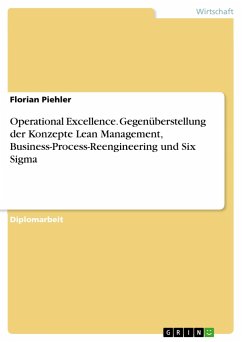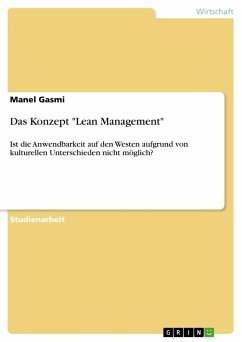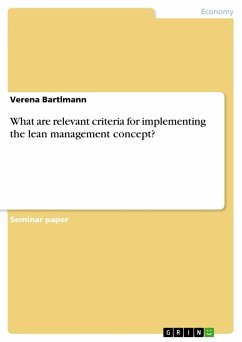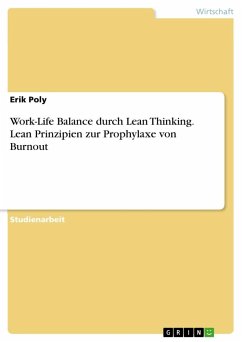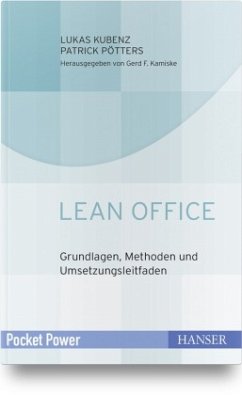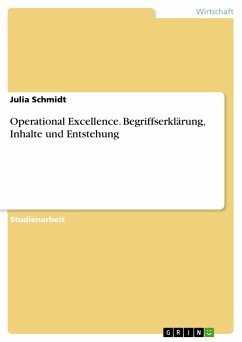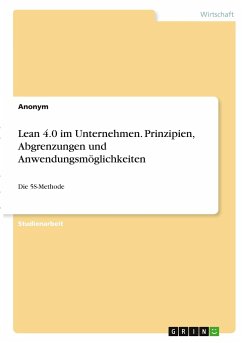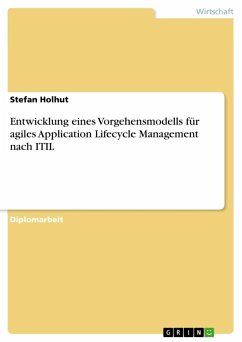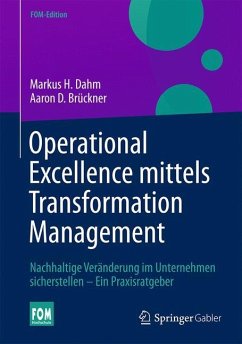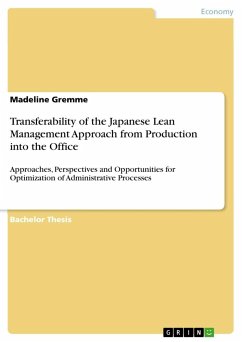
Transferability of the Japanese Lean Management Approach from Production into the Office
Approaches, Perspectives and Opportunities for Optimization of Administrative Processes

PAYBACK Punkte
0 °P sammeln!
Bachelor Thesis from the year 2015 in the subject Business economics - Business Management, Corporate Governance, grade: 1,3, University of applied sciences Dortmund, course: International Management, language: English, abstract: After the propitious end of the year 2013, economy started a slow recovery with signs of a cyclical upturn at the beginning of 2014. The construction sector, consumer industries and company service providers were in good shape, while capital goods producers have almost returned to their former strength. Other important international trading companies started to intens...
Bachelor Thesis from the year 2015 in the subject Business economics - Business Management, Corporate Governance, grade: 1,3, University of applied sciences Dortmund, course: International Management, language: English, abstract: After the propitious end of the year 2013, economy started a slow recovery with signs of a cyclical upturn at the beginning of 2014. The construction sector, consumer industries and company service providers were in good shape, while capital goods producers have almost returned to their former strength. Other important international trading companies started to intensify their growth little by little. Globalization continued its progress, since the economic crisis weakened multinational corporations from Europe, the USA and Japan only barely. At the same time, companies in the West were increasingly challenged by global competition. Fast-acting contractors found new clients and strategic trading partners, while the latter, however, were facing strong andaggressive competition. International competition continues to remain one of the key issues that companies have to deal with today. Productivity and efficiency have to be improved steadily and innovation, research and development initiatives are to be constantly promoted. In order to address this issue successfully, numerous companies make investment into the education and training of their personnel a priority. Employees are called upon to recognize the potential for improvement at their workplace and to propose creative solutions. The concept of Lean Management, formerly mostly applied at Japanese companies, is presently a reference term for lean processes and continuous competitiveness building.In scholarly literature, Lean Administration or Lean Office is described as the application of Lean Management approaches and methods to the field of business processes, without regard to whether they take place on the shop floor or on higher administrative levels. In the present thesis, the applicability of this management approach will be not only analyzed, but also submitted to critically scrutiny. Is the term "Lean" only expressive of a misplaced downsizing fervor, as critics claim, or are the successes of Lean Management transferable into the sphere of administration as well? Is it, thus, possible to achieve a "lean" administration? Can processes, often described as "nontransparent" and "non-measurable," indeed, be optimized through the application of this new management approach?




